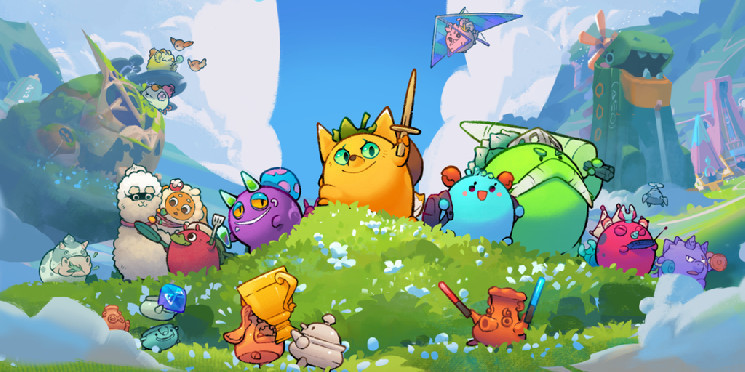RON, the native token of the Ethereum-based Ronin Network, continued its recent ascent Wednesday as it popped to a nearly two-year high price of $2.89, according to data from CoinGecko. It’s up 5% on the day and 57% over the past 30 days.
Ronin, an Ethereum sidechain designed for crypto games, has seen a recent rise in users and increased momentum tied in part to the success of Pixels, a social farming game that migrated from fellow Ethereum scaler Polygon last fall. The game’s play-to-airdrop campaign, which will reward top players with PIXEL tokens, helped fuel a surge in Ronin users.
However, the latest RON pump came after a couple of notable events in the world of Axie Infinity, the NFT-based monster-battling game developer Sky Mavis originally built Ronin to support back in 2021.
On Tuesday, Sky Mavis launched its seventh in-game competitive season in Axie Infinity Origins. Dubbed “Epic Era,” Season 7 will serve up 18,900 AXS and over 13.7 million SLP in reward tokens, collectively valued at about $175,000 as of this writing.
This axie just sold for 105 ETH ($245,843.85) 🤯
King Durendal has a new owner. Congrats @irfreak!
Durendal is one of 3 Agamogenesis axies.
Agamogenesis axies are genetically engineered axies researched and developed by MEO Corporation. They feature never-before-seen body… pic.twitter.com/5wbpRn1ltd
— Jihoz.ron 🦌 (@Jihoz_Axie) January 31, 2024
Then, early Wednesday, a rare NFT monster from Axie Infinity sold for 105 Ethereum, or nearly $246,000 worth at the time of sale. Axie Infinity co-founder Jeff Zirlin tweeted that the particular Agamogenesis Axie NFTs originally sold for 6 ETH in 2018, back when that sum would’ve been worth approximately $3,300.
Axie Infinity saw skyrocketing success in 2021, generating billions of dollars’ worth of NFT trading volume as the game attracted millions of active players.
However, the game’s play-to-earn economy began struggling in early 2022 and the Ronin network’s bridge to Ethereum was hacked for $622 million. Sky Mavis eventually repaid affected Ronin users and has since continued to evolve the Axie ecosystem, gradually onboarding more third-party game studios to the network.
Edited by Ryan Ozawa.

